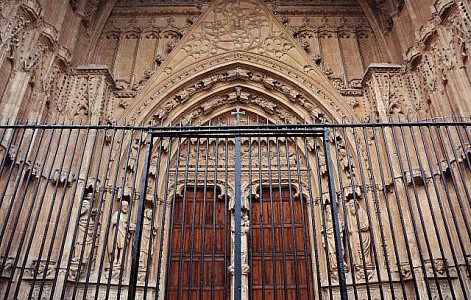[辅导:AncientLawChapter6]If an attempt were made to demonstrate in England the superiority of the historical method of investigation to the modes of inquiry concerning Jurisprudence whi...+阅读
Chapter 4. The Modern History of the Law of Nature
It will be inferred from what has been said that the theory which transformed the Roman jurisprudence had no claim to philosophical precision. It involved, in fact, one of those "mixed modes of thought" which are now acknowledged to he characterised all but the highest minds during the infancy of speculation, and which are far from undiscoverable even in the mental efforts of our own day. The Law of Nature confused the Past and the Present. Logically, it implied a state of Nature which had once been regulated by natural law; yet the jurisconsults do not speak clearly or confidently of the existence of such a state, which indeed is little noticed by the ancients except where it finds a poetical expression in the fancy of a golden age. Natural law, for all practical purposes, was something belonging to the present, something entwined with existing institutions, something which could be distinguished from them by a petent observer. The test which separated the ordinances of Nature from the gross ingredients with which they were mingled was a sense of simplicity and harmony; yet it was not on account of their simplicity and harmony that these finer elements were primarily respected, but on the score of their descent from the aboriginal reign of Nature. This confusion has not been successfully explained away by the modern disciples of the jurisconsults, and in truth modern speculations on the Law of Nature betray much more indistinctness of perception and are vitiated by much more hopeless ambiguity of language than the Roman lawyers can be justly charged with. There are some writers on the subject who attempt to evade the fundamental difficulty by contending that the code of Nature exists in the future and is the goal to which all civil laws are moving, but this is to reverse the assumptions on which the old theory rested, or rather perhaps to mix together two inconsistent theories. The tendency to look not to the past but to the future for types of perfection was brought into the world by Christianity. Ancient literature gives few or no hints of a belief that the progress of society is necessarily from worse to better.
But the importance of this theory to mankind has been very much greater than its philosophical deficiencies would lead us to expect. Indeed, it is not easy to say what turn the history of thought, and therefore, of the human race, would he taken, if the belief in a law natural had not bee universal in the ancient world.
There are two special dangers to which law and society which is held together by law, appear to be liable in their infancy. One of them is that law may be too rapidly developed. This occurred with the codes of the more progressive Greek munities, which disembarrassed themselves with astonishing facility from cumbrous forms of procedure and needless terms of art, and soon ceased to attach any superstitious value to rigid rules and preions. It was not for the ultimate advantage of mankind that they did so, though the immediate benefit conferred on their citizens may he been considerable. One of the rarest qualities of national character is the capacity for applying and working out the law, as such, at the cost of constant miscarriages of abstract justice, without at the same time losing the hope or the wish that law may be conformed to a higher ideal. The Greek intellect, with all its nobility and elasticity, was quite unable to confine itself within the strait waistcoat of a legal formula; and, if we may judge them by the popular courts of Athens of whose working we possess accurate knowledge, the Greek tribunals exhibited the strongest tendency to confound law and fact. The remains of the Orators and the forensic monplaces preserved by Aristotle in his Treatise on Rhetoric, show that questions of pure law were constantly argued on every consideration which could possibly influence the mind of the judges. No durable system of jurisprudence could be produced in this way. A munity which never hesitated to relax rules of written law whenever they stood in the way of an ideally perfect decision on the facts of particular cases, would only; if it bequeathed any body of judicial principles to posterity bequeath one consisting of the ideas of right and wrong which happened to be prevalent at the time. Such a jurisprudence would contain no framework to which the more advanced conceptions of subsequent ages could be fitted. It would amount at best to a philosophy marked with the imperfections of the civilisation under which it grew up.
Few national societies he had their jurisprudence menaced by this peculiar danger of precocious maturity and untimely disintegration. It is certainly doubtful whether the Romans were ever seriously threatened by it, but at any rate they had adequate protection in their theory of Natural Law. For the Natural Law of the jurisconsults was distinctly conceived by them as a system which ought gradually to absorb civil laws, without superseding them so long as they remained unrepealed. There was no such impression of its sanctity abroad, that an appeal to it would be likely to overpower the mind of a judge who was charged with the superintendence of a particular litigation. The value and serviceableness of the conception arose from its keeping before the mental vision a type of perfect law, and from its inspiring the hope of an indefinite approximation to it, at the same time that it never tempted the practitioner or the citizen to deny the obligation of existing laws which had not yet been adjusted to the theory. It is important too to observe that this model system, unlike many of those which he mocked men's hopes in later days, was not entirely the product of imagination. It was never thought of as founded on quite untested principles. The notion was that it underlay existing law and must be looked for through it. Its functions were in short remedial, not revolutionary or anarchical. And this, unfortunately, is the exact point at which the modern view of a Law of Nature has often ceased to resemble the ancient.
The other liability to which the infancy of society is exposed has prevented or arrested the progress of far the greater part of mankind. The rigidity of primitive law, arising chiefly from its early association and identification with religion, has chained down the mass of the human race to those views of life and conduct which they entertained at the time when their usages were first consolidated into a systematic form. There were one or two races exempted by a marvellous fate from this calamity, and grafts from these stocks he fertilised a few modern societies, but it is still true that, over the larger part of the world, the perfection of law has always been considered as consisting in adherence to the ground plan supposed to he been marked out by the original legislator. If intellect has in such cases been exercised on jurisprudence, it has uniformly prided itself on the subtle perversity of the conclusions it could build on ancient texts, without discoverable departure from their literal tenour. I know no reason why the law of the Romans should be superior to the laws of the Hindoos, unless the theory of Natural Law had given it a type of excellence different from the usual one. In this one exceptional instance, simplicity and symmetry were kept before the eyes of a society whose influence on mankind was destined to be prodigious from other causes, as the characteristics of an ideal and absolutely perfect law. It is impossible to overrate the importance to a nation or profession of hing a distinct object to aim at in the pursuit of improvement. The secret of Bentham's immense influence in England during the past thirty years is his success in placing such an object before the country. He ge us a clear rule of reform. English lawyers of the last century were probably too acute to be blinded by the paradoxical monplace that English law was the perfection of human reason, but they acted as if they believed it for want of any other principle to proceed upon. Bentham made the good of the munity take precedence of every other object, and thus ge escape to a current which had long been trying to find its way outwards.
It is not an altogether fanciful parison if we call the assumptions we he been describing the ancient counterpart of Benthamism. The Roman theory guided men's efforts in the same direction as the theory put into shape by the Englishman; its practical results were not widely different from those which would he been attained by a sect of law-reformers who maintained a steady pursuit of the general good of the munity. It would be a mistake, however, to suppose it a conscious anticipation of Bentham's principles. The happiness of mankind is, no doubt, sometimes assigned, both in the popular and in the legal literature of the Romans, as the proper object of remedial legislation, but it is very remarkable how few and faint are the testimonies to this principle pared with the tributes which are constantly offered to the overshadowing claims of the Law of Nature. It was not to anything resembling philanthropy, but to their sense of simplicity and harmony —— of what they significantly termed "elegance" —— that the Roman jurisconsults freely surrendered themselves. The coincidence of their labours with those which a more precise philosophy would he counselled has been part of the good fortune of mankind.
Turning to the modern history of the law of nature, we find it easier to convince ourselves of the vastness of its influence than to pronounce confidently whether that influence has been exerted for good or for evil. The doctrines and institutions which may be attributed to it are the material of some of the most violent controversies debated in our time, as will be seen when it is stat

ed that the theory of Natural Law is the source of almost all the special ideas as to law, politics, and society which France during the last hundred years has been the instrument of diffusing over the western world. The part played by jurists in French history, and the sphere of jural conceptions in French thought, he always been remarkably large. It was not indeed in France, but in Italy, that the juridical science of modern Europe took its rise, but of the schools founded by emissaries of the Italian universities in all parts of the continent, and attempted (though vainly) to be set up in our island, that established in France produced the greatest effect on the fortunes of the country. The lawyers of France immediately formed a strict alliance with the kings of the house of Capet, and it was as much through their assertions of royal prerogative, and through their interpretations of the rules of feudal succession, as by the power of the sword, that the French monarchy at last grew together out of the agglomeration of provinces and dependencies. The enormous advantage which their understanding with the lawyers conferred on the French kings in the prosecution of their struggle with the great feudatories, the aristocracy, and the church, can only be appreciated if we take into account the ideas which prevailed in Europe far down into the middle ages. There was, in the first place, a great enthusiasm for generalisation and a curious admiration for all general propositions, and consequently, in the field of law, an involuntary reverence for every general formula which seemed to embrace and sum up a number of the insulated rules which were practised as usages in various localities. Such general formulas it was, of course, not difficult for practitioners familiar with the Corpus Juris or the Glosses to supply in almost any quantity. There was, however, another cause which added yet more considerably to the lawyers' power. At the period of which we are speaking, there was universal vagueness of ideas as to the degree and nature of the authority residing in written texts of law For the most part, the peremptory preface, Ita um est, seems to he been sufficient to silence all objections. Where a mind of our own day would jealously scrutinise the formula which had been quoted, would inquire its source, and would (if necessary) deny that the body of law to which it belonged had any authority to supersede local customs, the elder jurist w ould not probably he ventured to do more than question the applicability of the rule, or at best cite some counter proposition from the Pandects or the Canon Law. It is extremely necessary to bear in mind the uncertainty of men's notions on this most important side of juridical controversies, not only because it helps to explain the weight which the lawyers threw into the monarchical scale, but on account of the light which it sheds on several curious historical problems. The motives of the author of the Fed Decretals and his extraordinary success are rendered more intelligible by it. And, to take a phenomenon of smaller interest, it assists us, though only partially to understand the plagiarisms of Bracton. That an English writer of the time of Henry III should he been able to put off on his countrymen as a pendium of pure English law a treatise of which the entire form and a third of the contents were directly borrowed from the Corpus Juris, and that he should he ventured on this experiment in a country where the systematic study of the Roman law was formally proscribed, will always be among the most hopeless enigmas in the history of jurisprudence; but still it is something to lessen our surprise when we prehend the state of opinion at the period as to the obligatory force of written texts, apart from all consideration of the Source whence they were derived.
When the kings of France had brought their long struggle for supremacy to a successful close, an epoch which may be placed roughly at the accession of the branch of Valois-Angouleme to the throne, the situation of the French jurists was peculiar and continued to be so down to the outbreak of the revolution. On the one hand, they formed the best instructed and nearly the most powerful class in the nation. They had made good their footing as a privileged order by the side of the feudal aristocracy, and they had assured their influence by an anisation which distributed their profession over France in great chartered corporations possessing large defined powers and still larger indefinite claims. In all the qualities of the advocate, the judge, and the legislator, they far excelled their peers throughout Europe. Their juridical tact, their ease of expression, their fine sense of analogy and harmony, and (if they may be judged by the highest names among them) their passionate devotion to their conceptions of justice, were as remarkable as the singular variety of talent which they included, a variety covering the whole ground between the opposite poles of Cujas and Montesquieu, of D'Aguesseau and Dumoulin. But, on the other hand, the system of laws which they had to administer stood in striking contrast with the habits of mind which they had cultivated. The France which had been in great part constituted by their efforts was smitten with the curse of an anomalous and dissonant jurisprudence beyond every other country in Europe. One great division ran through the country and separated it into Pays du Droit Ecrit and Pays du Droit Coutumier; the first acknowledging the written Roman law as the basis of their jurisprudence, the last admitting it only so far as it supplied general forms of expression, and courses of juridical reasoning which were reconcileable with the local usages. The sections thus formed were again variously subdivided. In the Pays du Droit Coutumier province differed from province, county from county, municipality from municipality, in the nature of its customs. In the Pays du Droit Ecrit the stratum of feudal rules which overlay the Roman law was of the most miscellaneous position. No such confusion as this ever existed in England. In Germany it did exist, but was too much in harmony with the deep political and religious divisions of the country to be lamented or even felt. It was the special peculiarity of France that an extraordinary diversity of laws continued without sensible alteration while the central authority of the monarchy was constantly strengthening itself, while rapid approaches were being made to plete administrative unity, and while a fervid national spirit had been developed among the people. The contrast was one which fructified in many serious results, and among them we must rank the effect which it produced on the minds of the French lawyer. Their speculative opinions and their intellectual bias were in the strongest opposition to their interests and professional habits. With the keenest sense and the fullest recognition of those perfections of jurisprudence which consist in simplicity and uniformity, they believed, or seemed to believe, that the vices which actually infested French law were ineradicable: and in practice they often resisted the reformation of abuses with an obstinacy which was not shown by many among their less enlightened countrymen. But there was a way to reconcile these contradictions. They became passionate enthusiasts for Natural Law. The Law of Nature overleapt all provincial and municipal boundaries; it disregarded all distinctions between noble and burgess, between burgess and peasant; it ge the most exalted place to lucidity, simplicity and system; but it mitted its devotees to no specific improvement, and did not directly threaten any venerable or lucrative technicality. Natural law may be said to he bee the mon law of France, or, at all events, the admission of its dignity and claims was the one te which all French practitioners alike subscribed to. The language of the prae-revolutionary jurists in its eulogy is singularly unqualified, and it is remarkable that the writers on the Customs, who often made it their duty to speak disparagingly of the pure Roman law, speak even more fervidly of Nature and her rules than the civilians who professed an exclusive respect for the Digest and the Code. Dumoulin, the highest of all authorities on old French Customary Law, has some extragant passages on the Law of Nature; and his panegyrics he a peculiar rhetorical turn which indicated a considerable departure from the caution of the Roman jurisconsults. The hypothesis of a Natural Law had bee not so much a theory guiding practice as an article of speculative faith, and accordingly we shall find that, in the transformation which it more recently underwent, its weakest parts rose to the level of its strongest in the esteem of its supporters.
The eighteenth century was half over when the most critical period in the history of Natural Law was reached. Had the discussion of the theory and of its consequences continued to be exclusively the employment of the legal profession, there would possibly he been an abatement of the respect which it manded; for by this time the Esprit des Lois had appeared. Bearing in some exaggerations the marks of the excessive violence with which its author's mind had recoiled from assumptions usually suffered to pass without scrutiny, vet showing in some ambiguities the traces of a desire to promise with existing prejudice, the book of Montesquieu, with all its defects, still proceeded on that Historical Method before which the Law of Nature has never maintained its footing for an instant. Its influence on thought ought to he been as great as its general popularity; but, in fact, it was never allowed time to put it forth, for the counter-hypothesis which it seemed destined to destroy passed suddenly from the forum to the street, and became the key
以下为关联文档:
辅导:AncientLawChapter7The conception of a universal succession, firmly as it has taken root in jurisprudence, has not occurred spontaneously to the framers of every body of laws. Where...

AncientLawChapter1AncientCodesChapter 1. Ancient CodesThe most celebrated system of jurisprudence known to the world begins, as it ends, with a Code. From the mencement to the close of its hi...

法律辅导:AncientLawChapter9Chapter 9. The Early History of ContractThere are few general propositions concerning the age to which we belong which seem at first sight likely to be receive...

辅导:AncientLawChapter1Chapter 1. Ancient CodesThe most celebrated system of jurisprudence known to the world begins, as it ends, with a Code. From the mencement to the close of its hi...

辅导:AncientLawChapter8Chapter 7. Ancient and Modern Ideas Respecting Wills and SuccessionsAlthough there is much in the modern European Law of Wills which is intimately connected wi...




